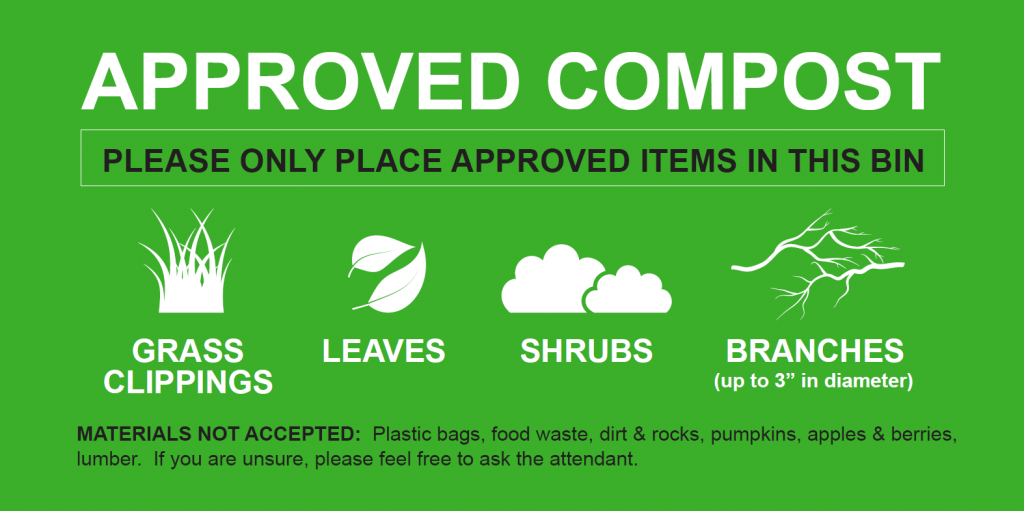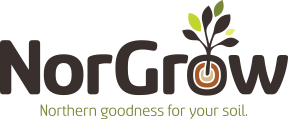Composting Organics
Nature’s way to recycle
Composting is essential to the Regional District’s goal to reduce the amount of waste that gets disposed of in landfills. According to our study, over 30% of material arriving on site are compostable organic materials. You can help reduce that number!

Composting is nature’s way to recycle itself.
Bacteria, worms, and fungi all help breakdown the cell structure of organic materials. Over time, it becomes a dark, crumbly substance that is rich in nutrients other living plants can absorb.
Clean, source-separated yard and garden waste is received at no charge.
Yard and garden waste is defined as leaves, grass and hedge clippings, shrub and tree branches up to 75 mm (3 inches) in diameter. Processed yard and garden waste can include tree pruning waste which has been chipped to less than 50 mm in any dimension.


Waste must also be free of any fruits, vegetables, or berries that may be on the branches or bush.
This is to minimize the risk of attracting animals to the compost facility at the depot.
Some Materials Are Not Accepted:
- Branches and other woody debris over 75 mm (3 inch) in diameter and stumps present operational problems. Large branches and stumps have a high carbon to nitrogen ratio which affects the composting process. The bulky nature of these materials also significantly increases handling and processing costs.
- Non-organic material such as dirt, rocks, asphalt, concrete, and metals can severely damage the processing equipment and create safety concerns and contaminates can affect the quality of finished compost making it difficult to use.
- Weeds, although they are compostable and the heat from the composting process kills the weed seeds, it is best to landfill weeds as they can negatively impact the quality of the compost. Noxious weeds should be cut /pulled before they go to seed, bagged, and disposed of with household garbage.
- Composting site capacity and processing ability does not allow us to handle land clearing debris or industrial sources of wood waste through the composting operation. For more information on how to dispose of these, see our Demolition, Land Clearing, and Construction (DLC) page.
- Loads contaminated with unacceptable materials will be charged the appropriate tipping fees as these materials must be landfilled, so save money by making sure you have separated your waste.
If you have any questions about whether your material qualifies as Yard and Garden Waste, please contact the Foothills Boulevard Regional Landfill at 250-962-8972

Remember when transporting your yard waste to the landfill, ensure that loads are covered and secured so that material does not fall out onto the road. Any unsecured loads will be subject to a double charge.
Keep Fruit Out of the Compost Operations
- Pick fruit and allow it to ripen indoors or pick daily as it ripens. Do not allow windfall to accumulate on the ground.
- If you have more fruit than you can use visit the Prince George Fruit Exchange (opens in a new window) Facebook page or contact the Northern Bear Awareness Society at 778-281-2327 for more information.
- Apples can also be donated to the Northern Lights Wildlife Society. Apples must not be unripe or rotten. Drop off location in Prince George is 2050 Robertson Rd – Independent Glass Distributors Ltd.

Looking to purchase compost instead? Have you tried NorGrow?


